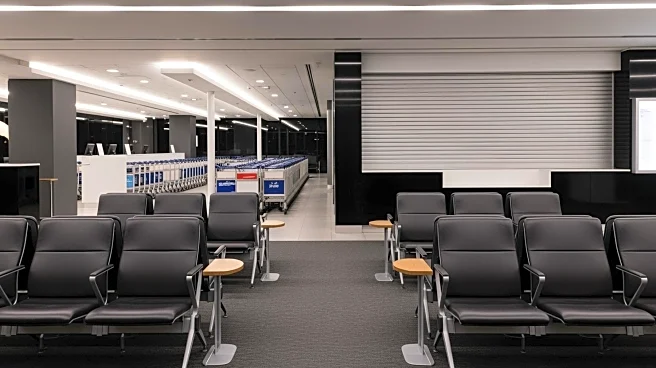What's Happening?
Airlines in the United States are increasingly charging more while offering fewer services, a trend that has extended to hotels and cruise lines. This shift is attributed to consumers prioritizing low
upfront prices, which allows companies to add extra fees later. Despite initial outcry, such as when Southwest Airlines eliminated its 'bags fly free' policy, passengers continue to book flights and pay additional fees. Experts suggest that years of conditioning and poor customer service have led consumers to accept this as the norm. The practice of disaggregation, where services are unbundled to lower basic fares, has become common, with airlines aiming to appear at the top of price comparison lists. This has resulted in a psychological acceptance among travelers that lower prices equate to lower service levels.
Why It's Important?
The trend of paying more for less in the travel industry has significant implications for consumer rights and market dynamics. As travelers continue to accept these conditions, companies are incentivized to maintain or even increase these practices, potentially leading to a decline in service quality across the industry. This could affect consumer satisfaction and loyalty, impacting the long-term viability of businesses that rely on repeat customers. Additionally, the normalization of hidden fees and reduced services could set a precedent for other industries, influencing broader economic practices and consumer expectations.
What's Next?
Industry experts suggest that change will only occur when consumers collectively demand better service and transparency. Travelers are encouraged to seek out companies with transparent pricing models and to reject service cuts. By rewarding businesses that offer fair pricing and quality service, consumers can influence industry standards. Additionally, increased awareness and advocacy for consumer rights could lead to regulatory changes that protect travelers from exploitative practices.








